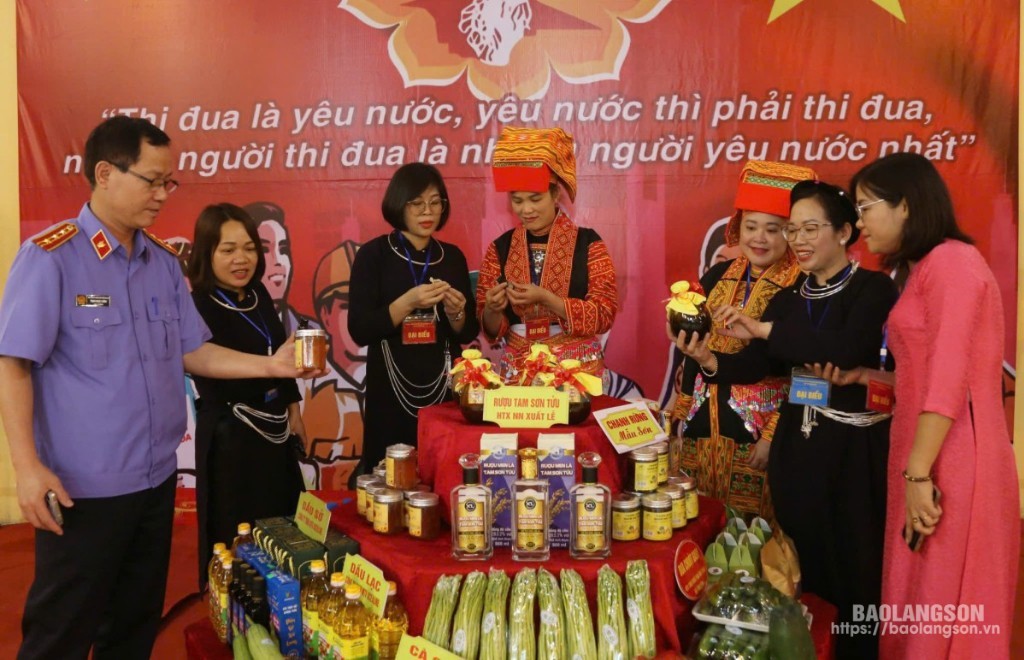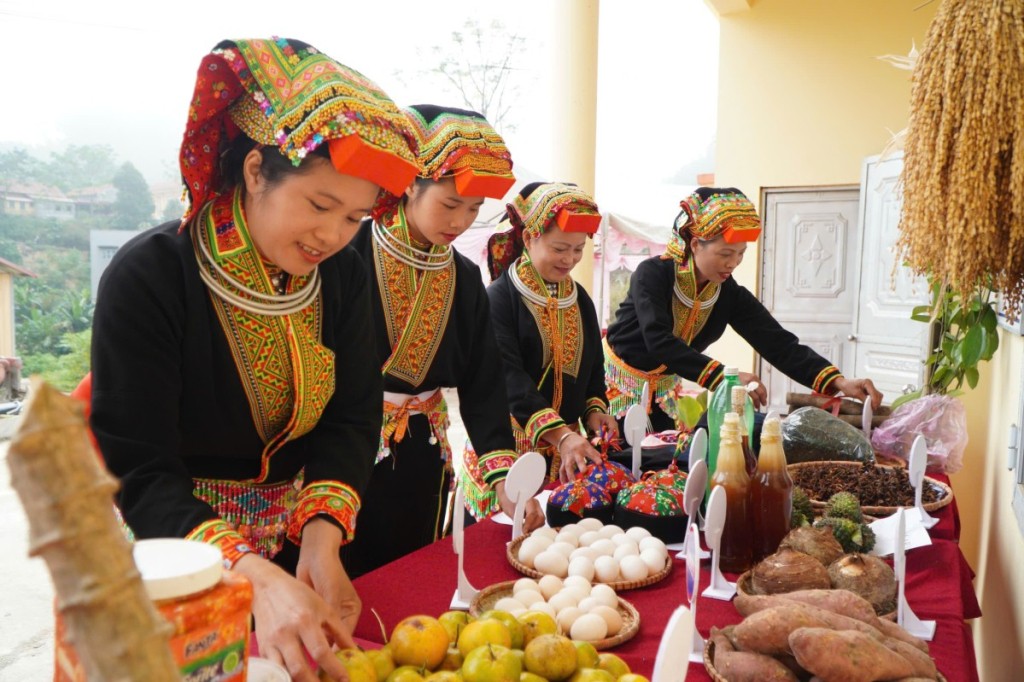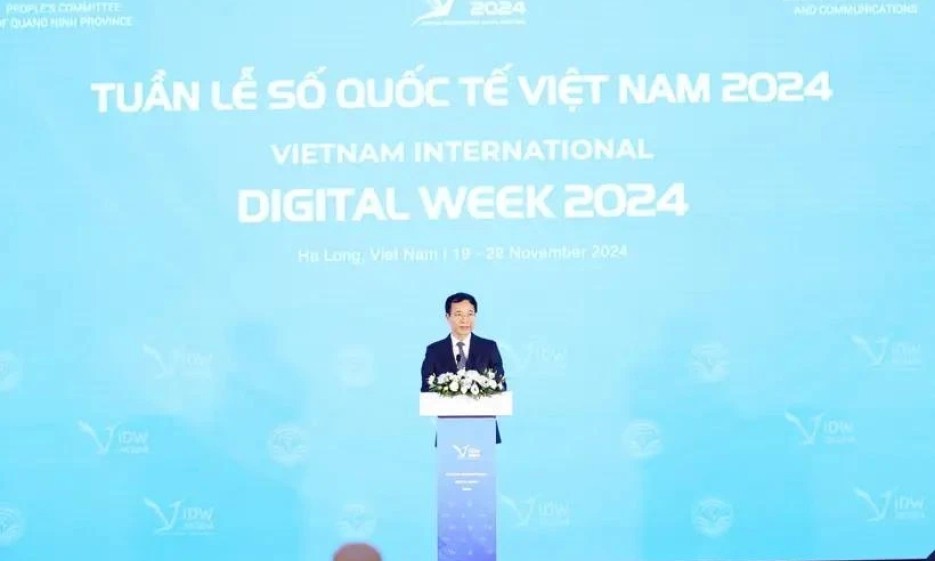Ethnic Minorities in Lang Son Unite, Innovate, Integrate, and Develop Sustainably
In recent years, with strong determination from the entire political system, from the province to the grassroots level, and the consensus of the people, Lang Son has effectively implemented ethnic affairs and achieved significant results.

Lang Son is a mountainous, border province with a natural area of 831,018 hectares and a population of over 812,000 people in 2024. The Kinh ethnic group accounts for 16.09% of the population, while ethnic minorities make up 83.91%. The province consists of 11 administrative districts, 200 communes, wards, and towns, of which 199 communes belong to the ethnic minority and mountainous areas. These include 103 communes in Region I, 8 communes in Region II, and 88 communes in Region III, according to Decision No. 861/QD-TTg, dated June 4, 2021, by the Prime Minister.
From 2019 to 2024, despite facing numerous challenges such as the impact of the COVID-19 pandemic, natural disasters, and climate change, under the leadership and timely guidance of the Provincial Party Committee, the close coordination and effective monitoring by the Provincial People's Council and agencies in the political system, along with the efforts of the people, the Provincial People's Committee focused on directing the implementation of ethnic affairs, ethnic programs, policies, and tasks related to socio-economic development, national defense, and security in a synchronized and comprehensive manner, applying flexible and creative solutions suited to the real situation.
As a result, the socio-economic situation, along with the material and spiritual life of the people in the ethnic minority and mountainous areas of the province, has stabilized and developed gradually. Social welfare has been ensured, political security, social order, and the national border sovereignty have been maintained. The ethnic minorities are excited and confident in the leadership of the Party, and the management and administration of the State. They continuously uphold the spirit of unity, promote internal strength, and actively engage in labor and production to build their homeland.
The province's economy has developed steadily, with an average GDP growth rate of 6.27% from 2019 to 2023. The economic structure has shifted towards increasing the proportion of the industrial sector and decreasing the proportion of agriculture and forestry. The average income per capita in 2019 was 43.4 million VND, and it is estimated to reach 61.9 million VND by the end of 2024.
The socio-economic infrastructure in the province has received attention and investment, with many key projects completed and put into use, creating a growth momentum and promoting socio-economic development. Notable projects include the Bang Giang- Lang Son expressway (Bac Giang – Chi Lang section) ; the construction and acceleration of the Huu Nghi - Chi Lang border gate expressway; the Dong Dang (Lang Son) – Tra Linh (Cao Bang) expressway; the renovation and upgrade of National Road 4B (Km3+700-Km18 and Km18-Km80 sections)...
The movement to build rural roads and bridges has continued to receive strong support and active participation from the people, bringing about positive results. The percentage of communes with asphalted or concreted roads to the commune center has increased from 77.6% in 2019 to 98.3% in 2024; the percentage of hamlets with motorable roads to the hamlet center has increased from 41.8% in 2019 to over 87% in 2024. Currently, 100% of communes have access to the national power grid, with over 99% of households using electricity, and 98.5% of rural residents have access to clean water.

National target programs have been focused on with strong direction and coordinated, effective implementation. By 2019, 61 out of 207 communes, or 29.5%, had achieved new rural standards. By the end of 2023, 98 out of 181 communes, or 54.1%, had met the new rural standards. It is projected that in 2024, an additional 11 communes will achieve new rural standards. The average poverty reduction rate reached over 2.9% per year; the poverty rate in the province in 2019 was 10.89%, and by the end of 2024, it is expected to decrease to 4.02%, achieving the set targets. Rural areas have undergone visible changes, with the material and spiritual lives of the people improving, social welfare being ensured, and the gap in living standards between ethnic groups and regions gradually narrowing.
The work of preserving and promoting the values of historical revolutionary sites and ethnic cultural heritage, linked with tourism development, has been implemented in a coordinated and effective manner. The quality of education in ethnic minority and mountainous areas continues to improve. The scale and network of schools and classes have been expanded; the facilities and teaching equipment for ethnic minority boarding schools, semi-boarding schools, and schools in particularly difficult communes have been invested to meet national standards. The enrollment rate for preschool children and primary school students has been maintained at over 99%. As of now, there are 295 national-standard schools in the province (including 102 preschools, 87 primary schools, 94 secondary schools, and 12 high schools). The work of protecting and caring for people's health, especially that of ethnic minorities, has received attention and focus. The system of commune health stations and district-level general hospitals has been upgraded. The number of doctors and medical staff has been increased to meet the people's healthcare needs. By the end of 2024, it is expected that 200 communes will meet the national health criteria, with 11.4 doctors and 33.6 hospital beds per 10,000 people. The percentage of people participating in health insurance is expected to reach 94.45%. Additionally, 100% of the poor and ethnic minorities in particularly difficult communes, as well as children under six years old, will receive free health insurance cards.
The political and social situation remains stable, with national defense, security, and territorial sovereignty being firmly protected. The work of building the Party and the political system has achieved many positive results. The great national unity bloc has been strengthened, and the people's trust in the Party and the State has increased.
Building on the achievements of the past, in the period 2024-2029, the Provincial Party Committee, Provincial People's Council, and Provincial People's Committee will continue to focus on leading and directing the implementation of ethnic work and ethnic policies, aligning with the goals of socio-economic development and ensuring national defense and security. The focus will be on ten key tasks and solutions as follows:
First, continue to thoroughly implement the Party's guidelines, the State's laws and policies on ethnic affairs, and ethnic policies, enhancing the awareness and responsibility of all levels and sectors in organizing and implementing these tasks; focus on promoting legal dissemination and education for ethnic minority and mountainous regions.
Second, accelerate the development of agriculture and forestry to improve the income of the people. Effectively implement agricultural and forestry production development projects, utilizing regional potential and strengths to produce goods along value chains; implement models linking production, processing, and product consumption. Invest in building infrastructure to support agricultural and forestry production; encourage investment in developing auxiliary industries in agriculture.
Third, strengthen investment in building infrastructure that serves the production and livelihoods of ethnic minority and mountainous communities, focusing on the comprehensive development of transportation infrastructure, irrigation systems, electricity, telecommunications, etc. Continue to implement planning, stabilizing populations linked to infrastructure development and the construction of new rural areas.
Fourth, promote research, application, and transfer of scientific and technological advances to serve socio-economic development in ethnic minority areas. Build, maintain, and develop collective brand names, certification trademarks, and geographical indications for key products and local specialties.
Fifth, promote the development of trade, services, and tourism in ethnic minority regions. Strengthen the implementation of support for agricultural production households, individual businesses, cooperatives, and cooperative groups to register and participate in e-commerce platforms. Develop ecological, historical, community-based, and adventure tourism products. Attract investment projects to exploit and develop tourism products with strengths in the province and in the ethnic minority and mountainous areas.
Sixth, improve the quality of the human resources in ethnic minority areas, strengthen investment in facilities, teaching equipment, and living conditions for ethnic minority boarding schools, semi-boarding schools, and schools in particularly disadvantaged areas in the direction of achieving national standards. Enhance vocational education quality and address employment for ethnic minorities; focus on training, planning, and developing a local workforce of ethnic minority cadres. Build a database on ethnic affairs.
Seventh, continue to effectively implement health and population work, healthcare for people in ethnic minority and mountainous regions; improve the quality of healthcare services and medical treatment for the people; focus on primary healthcare and preventive care, actively preventing diseases and promptly handling situations when epidemics occur.
Eighth, preserve and promote the beautiful traditional cultural identities of ethnic minorities, increase state investment, and strengthen social resources for cultural development; promote the role of artisans and stakeholders in preserving and developing the culture of ethnic minorities linked to economic, social, tourism, and service development in local areas.
Ninth, strengthen national defense, security, and social order in ethnic minority and mountainous areas. Focus on propaganda and mobilization to raise awareness among ethnic minority people to timely recognize, proactively fight, and thwart the plots, tactics, and activities of hostile forces. Continue to promote the role of trusted individuals within the ethnic minority communities.
Tenth, improve the effectiveness of coordination between all levels, sectors, the Fatherland Front, and political-social organizations in implementing ethnic affairs and ethnic policies; promote the initiative, self-awareness, determination, and aspirations of ethnic minority people to rise up.
With patriotism, self-reliance, and the aspiration to advance, along with the pride of their ethnic heritage, the ethnic minority people, together with the attention from the Party, the State, and society, we believe that the ethnic minority communities in Lang Son province will continue to unite, harness their potential and advantages, innovate, and strive to improve their living standards, making greater contributions to the rapid, comprehensive, and sustainable development of Lang Son in the coming years.
 Loading
Loading  Tiếng Việt
Tiếng Việt English
English 中文
中文


